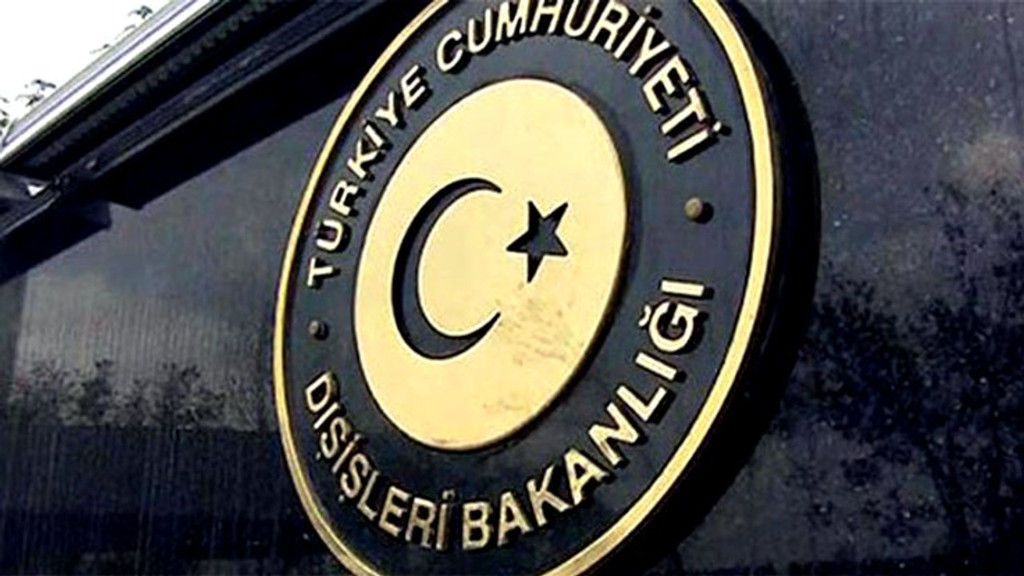The Turkish Foreign Ministry on Friday said it is monitoring “with concern” clashes that have taken place between the Kurdish-led Syrian Democratic Forces (SDF) and certain Arab tribal elements in the Deir ez-Zor countryside over the past week.
Ankara strongly opposes the Kurdish People’s Protection Units (YPG), the main component of the US-backed SDF, because of its links to the outlawed Kurdistan Workers’ Party (PKK), which has waged a decades-long insurgency in southeastern Turkey.
The SDF is the de facto army of the semi-autonomous Kurdish administration in northeastern Syria. It provided crucial assistance to a US-led coalition against the Islamic State in Iraq and the Levant (ISIL).
“This development is a new manifestation of the terrorist organization’s attempts to subjugate the native peoples of Syria through violence, oppression and violation of basic human rights,” the Turkish Foreign Ministry said.
Press Statement Regarding Developments in the Countryside of Deir ez-Zor https://t.co/Qu9G6kmDQQ pic.twitter.com/cwK1m0QoWf
— Turkish MFA (@MFATurkiye) September 1, 2023
“We hope that the true nature of this terrorist organization, which seeks to conceal its aims and intentions by claiming to be an actor in the fight against [ISIL], will be comprehended by its backers without further delay and without causing more harm to the native elements of the region, including the Syrian Kurds,” it added.
Syria’s Kurdish-led authorities on Friday imposed a curfew in the eastern province of Deir ez-Zor, days after the arrest of the chief of an allied Arab armed group prompted deadly clashes, Agence France-Presse reported.
Latest situation in the Deir ez Zour Conflict
Tribal Forces captured almost all settlements east of Deir ez-Zor along the Euphrates River to the Iraqi border
Information by @DeirEzzore
HD: https://t.co/kTg73Kgfil pic.twitter.com/SfGrBgOc46
— Levent Kemal (@leventkemaI) September 2, 2023
The SDF on Sunday arrested the chief of the Deir ez-Zor Military Council, a local Arab armed group affiliated with the Kurdish force, triggering clashes that have since left dozens dead.
“The Deir ez-Zor Military Council and the Internal Security Forces announce a curfew … from 0500 AM (0200 GMT) on September 2, for 48 hours,” the SDF said in a statement.
The SDF said armed groups affiliated with the Damascus government security services as well as ISIL cells were attempting to “cause civil strife in the region and lure civilians into their dirty plans.”
Rami Abdel Rahman, who heads the Syrian Observatory for Human Rights (SOHR), told AFP that Iran-backed Arab fighters had taken advantage of the clashes to cross over from the government-held part of the province into two Kurdish-controlled villages.
The Iran-backed fighters had clashed with local Kurdish-led forces, with their leader publishing a video urging Arab tribes to turn against Kurdish authorities.
The United States earlier Friday called on “all parties to de-escalate and peacefully resolve the situation.”
“The violence in northeast Syria must cease,” said the US military’s Operation Inherent Resolve, which supports the fight against the remnants of ISIL.
In a statement late Thursday the operation urged a renewed focus on efforts to bring “peace and stability in northeast Syria, free from the threat of Daesh,” another name for ISIL.
“We remain focused on working with the Syrian Democratic Forces to ensure the enduring defeat of Daesh, in support of regional security and stability. Distractions from this critical work create instability and increase the risk of Daesh resurgence.”
Smuggling activities
The US-backed SDF spearheaded the offensive that defeated the ISIL group’s self-declared caliphate in Syria in 2019. It controls a semi-autonomous Kurdish zone in Syria’s northeast, including large parts of the Deir ez-Zor province.
The reasons for the arrest of the head of the Deir ez-Zor Military Council, Ahmad al-Khabil, also known as Abu Khawla, have not been disclosed.
But SOHR and a local activist told AFP that he was known to run highly lucrative smuggling activities.
SOHR told AFP 54 people have been killed since the clashes broke out Sunday, mostly supporters of Khabil and SDF members, but also six civilians.
The Kurds administer the area through local civilian and military councils in an effort to stave off Arab discontent.
Some of the tribes had supported ISIL during its bloody reign, according to SOHR, which relies on a vast network of sources inside Syria.
Syria’s war has killed more than half a million people since it broke out in 2011 and quickly escalated into a deadly conflict that pulled in foreign powers and jihadists insurgents.


